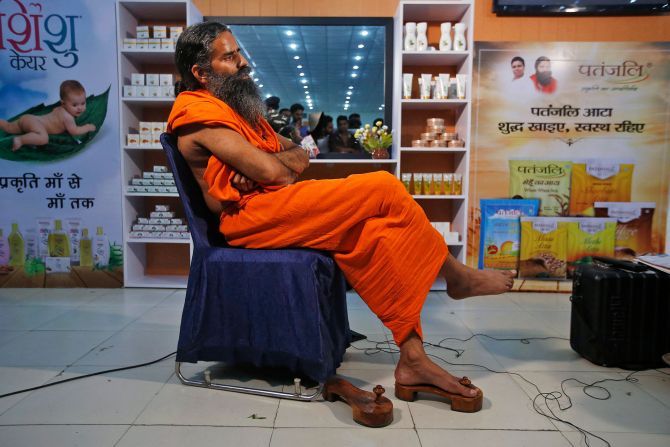While the company did not reveal its profit or loss for the period, according to its fillings, food and beverages was the largest category - accounting for 62.23 per cent or Rs 5,184 crore of its total sales.

After a year of faltering sales, Patanjali Ayurved has managed to address the slide.
The ayurveda major clocked Rs 8,330 crore turnover for 2018-19, 2.4 per cent higher than Rs 8,136 crore it had posted in 2017-18, according to its fillings with the Registrar of Companies.
While the company did not reveal its profit or loss for the period, according to its fillings, food and beverages was the largest category - accounting for 62.23 per cent or Rs 5,184 crore of its total sales.
Chemical-based products, pharmaceuticals, medicinal chemicals and botanical products - primarily representing its personal care range - contributed 34.99 per cent to its top line.
Wood and wood products, furniture, paper and paper products contributed 2.4 per cent.
The top line growth for Patanjali that once used to grow by leaps and bounds - between 2012-13 and 2016-17 - has come down since.
However, its performance last year indicates a turnaround from the downward slope that it found itself in 2017-18.
From Rs 8,964 crore operating revenue in 2016-17, it fell by 9.3 per cent in 2017-18.
According to the firm, introduction of Goods and Services Tax (GST) in mid-2017, severely disrupted its operations.
The initial glitches related to GST and the realignment work required due to its implementation cost the firm two months of its business in 2017.
A report by CARE Ratings said the decline was “primarily because of its inability to adapt in time to the GST regime and develop infrastructure and supply chain.”
To counter the falling sales, Patanjali had adopted a multi-pronged approach in 2018.
The firm, which depended heavily on branded outlets till 2017, began going deeper into the market by adding mom and pop stores.
To strengthen its sales and distribution in general trade, Patanjali hired 11,000 field personnel in mid-2018, and set a target of doubling that number within the financial year.
Patanjali Ayurved, which used to see 70 per cent of its sales from branded Patanjali stores till early-2018, set a target of catering to three million outlets by end-2019.
Patanjali, which was losing share to its rivals in the market like Hindustan Unilever and Colgate, regained some of the lost grounds during 2018-19.
According to data from Nielsen, Colgate-Palmolive lost market share, primarily to Patanjali and Dabur.
HUL’s share dipped by 80 basis points to 16.4 per cent.
According to analyst firm Jefferies estimates, Colgate-Palmolive lost its market share by eight percentage points since 2015 as Patanjali’s herbal-natural products attracted consumers.
Colgate, in fact, launched a new sub-brand ‘Ved Shakti’ and revived the brand Cibaca to counter the growing threat.
Photograph: Adnan Abidi/Reuters











